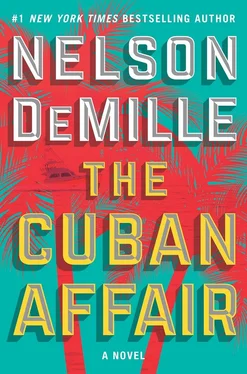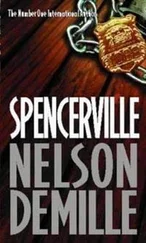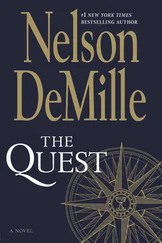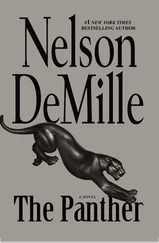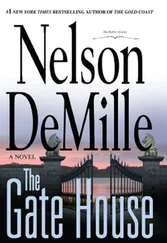The only possible response to all that bullshit was, “Muchas gracias.”
“De nada.” He continued, “It’s a two-day cruise to Bridgetown, and when you arrive there” — he smiled again — “you can continue your Caribbean holiday in Barbados.”
Nothing could top my Cuba vacation.
He advised us, “You should leave a message for Tad and Alison tomorrow morning that you are not feeling well and will remain in your rooms.”
“We know that.”
“Also, it would not be good for you to be seen leaving the hotel with your luggage, so you will leave it in your rooms, as though you are going out for a morning walk.”
“Good thinking.”
“You can buy what you need on the ship.”
Actually, we’ll be on our way to Camagüey Province to find sixty million dollars. And Antonio would be explaining to his police pals that the two Americanos disappeared during the night. Maybe they’d beat him up.
“Ramón has a description of you both. He is a short man, about sixty years old, and he will be wearing the green uniform of the security guards.”
But he’s actually an undercover agent for the Ministry of the Interior, and he has our photos from the airport.
“All you will need are your passports and your exit visas.” He asked, “Do you have any questions?”
“No.”
He looked at us and said, insincerely, “I’m sorry about this, but you have been caught up in historical events — a chess game played in Havana and Washington — and you are the innocent pawns.”
No, we’re actually guilty of something, but you don’t know what it is, asshole.
He informed us, “I need to see Ramón tonight, so I will not be at the dinner, but...” He glanced at me, then said to Sara, “I think I will see you later for the three hundred thousand pesos.”
What a deal. He gets laid, gets paid, and walks away, leaving us to get arrested.
Sara said to him, “I will see you later.” Then she said something to him in Spanish.
Antonio nodded, then looked at me. “I don’t think I should apologize. Do you?”
“I think you should leave.”
But he didn’t and said, “This is Cuba. My country. And you are lucky I am getting you out of here. So instead of your arrogance, I think perhaps you should thank me.”
Well, since he wasn’t going to fuck Sara, and since we were going to fuck him, I said, “Thank you.” I added, “Gracias.”
“De nada.” He smiled, then said to Sara, “I look forward to tonight,” and left.
She said softly, “I hate him.”
“Put the hate on hold.” Though, to be honest, if I had him alone I’d probably snap his neck. I asked her, “What time are you entertaining Antonio?”
“I confirmed midnight.”
Well, that would give us a little head start in getting out of Havana.
I asked her, “What other meaningful Cuban cultural experience would you like to have now?”
“We need to get my backpack.”
“Right. And we need to recon Calle 37.”
We went out into the heat of the city and took a Coco cab to the Vedado district, then walked to Calle 37, which was a street of nondescript buildings that looked like warehouses or auto repair shops. Number 570 was a ramshackle stucco building with an old wooden barn-like garage door, barred windows, and a rusty steel entrance door.
Sara said, “This looks like a place where there’d be a vehicle for us.”
I was reminded of the garage where the St. Valentine’s Day Massacre took place, but I didn’t share that thought with her.
There was no possibility that we were being watched or followed, so we headed toward Rolando’s to retrieve her backpack.
It was a fifteen-minute walk to the residential district, which appeared different in the daylight but no less deserted, and we still looked like we didn’t belong there. It was possible, I thought, that we’d been seen last night by the ubiquitous neighborhood vigilantes and chivatos, and that the police were staking out the area and waiting for us behind the wall. So, señor and señorita, are you looking for this backpack with the gun and the pesos? I mentioned this to Sara and she replied, “Chivatos turn in their friends and neighbors to the police, but they’d never turn in any evidence of a crime if it was worth more than two dollars.”
Right. In other words, if you see something, say something — unless you see that it’s worth money. Patriotism doesn’t buy the beans.
The low wall came into view and Sara suddenly picked up her pace, vaulted over the wall, then reappeared a few seconds later with the backpack, scrambled onto the sidewalk, and kept walking. The police did not pop out of the bushes.
As we headed for the bridge over the Río Almendares, I pulled the Glock out of her backpack and stuck it in my belt under my Polo shirt. We were traveling hot again.
As we crossed the bridge, I wrestled with the idea of dropping the hot gun in the cool river. But then I thought about our meeting tonight in the St. Valentine’s Day Massacre garage, and our road trip into the Cuban heart of darkness, and our rendezvous in Cayo — and I recalled Jack’s wise T-shirt words, “Better to have a gun and not need it than to need a gun and not have it.”
We looked less conspicuous in Miramar, and we retraced our path to Avenida Quinta and hailed a taxi. We were back at the hotel by four o’clock, hot, sweaty, and tired, but happy in the way that a successful but uneventful recon patrol makes you feel.
Sara went to her room to shower and change into clothes that would be appropriate for both the Mama Inés restaurant and what could be a week in the boondocks, trying to look like a backpacker. I did the same, saying adios to my discount luggage and dirty clothes except for my sweat-stained Hemingway T-shirt, which I put in a plastic bag and stuffed in my backpack.
I strapped on my fanny pack containing the Glock and the extra magazines and left the room with a DO NOT DISTURB sign on the door, then went down to the meeting room where the Yalies were assembling for Professor Nalebuff’s lecture on Cuban-American relations. On his next trip here Nalebuff could add a footnote about Dan MacCormick and Sara Ortega. Arrested and executed? Or escaped with the Batista-era loot and living happily ever after? I took a seat and waited for Sara.
Professor Nalebuff took the podium and began, “This is the story of David and Goliath, Cuba and America. It is the story of a long love-hate relationship that spans the centuries, a story that is both heartbreaking and hopeful.”
I noticed that Richard Neville was taking notes, and I had no doubt that Professor Nalebuff’s eloquent words would find their way into Neville’s next novel. Plagiarism is the sincerest form of flattery.
Sara appeared at the door with her backpack, wearing black jeans, a dark green T-shirt, and hiking boots, and she had her shoulder bag, presumably packed with pesos. I was similarly dressed in blue jeans, a gray gym shirt, and boots. Our backpacks didn’t draw any attention because some of our group carried their packs on the bus, day and night.
Sara sat next to me and I asked, “Did you pack a bathing suit?”
So we listened to Professor Nalebuff tell us, in scholarly language, what I’d concluded before I even got here — Cuba and America had been fucking each other so long that we both must be getting something out of it.
Professor Nalebuff concluded, “If both sides act with goodwill, and if neither country causes or exploits a diplomatic incident, the future looks promising.”
Should I tell him that the diplomatic incident was sitting in front of him?
As Sara and I descended the sweeping staircase into the lobby, she said, “Since we’re not coming back tonight, we need to leave a note now for Tad and Alison to get in the morning.”
Читать дальше
